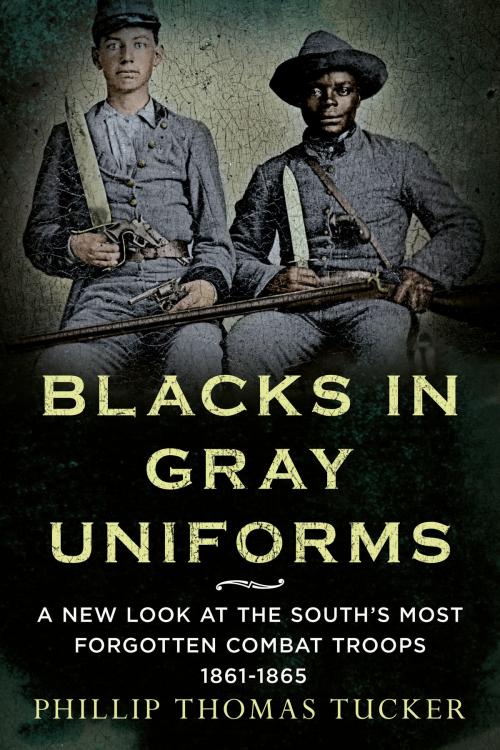Blacks in Gray Uniforms
A New Look at the South's Most Forgotten Combat Troops 1861-1865
Nonfiction, History, Americas, United States, Civil War Period (1850-1877), Military| Author: | Phillip Thomas Tucker | ISBN: | 1230002403700 |
| Publisher: | Fonthill Media | Publication: | July 1, 2018 |
| Imprint: | Language: | English |
| Author: | Phillip Thomas Tucker |
| ISBN: | 1230002403700 |
| Publisher: | Fonthill Media |
| Publication: | July 1, 2018 |
| Imprint: | |
| Language: | English |
This ground-breaking book takes an insightful and close "New Look" at one of the most fascinating subjects of the Civil War--the long-overlooked battlefield contributions of the most forgotten fighting men of the Civil War, Black Confederates. With the release of the popular 1989 film Glory, the American public first learned about the heroism of the black troops of the 54th Massachusetts Volunteer Infantry and their courageous assault on Fort Wagner, South Carolina, in July 1863. But what the American public failed to learn in viewing this popular film was the equally compelling saga of Black Confederates, including at least one defender, a free black soldier of the 1st South Carolina Artillery who defended Fort Wagner in July 1863.
Significantly, large numbers of Black Confederates, slave and free, had already been fighting on battlefields across the South for more than two years before the famous assault of the 54th Massachusetts on Fort Wagner, including the war's first major battle at Bull Run. Although the vast of majority blacks served the Confederacy in menial and support roles, Black Confederates, free and slave, fought from 1861 to 1865 in regiments (infantry, cavalry, and artillery) that represented every Southern state.
This ground-breaking book takes an insightful and close "New Look" at one of the most fascinating subjects of the Civil War--the long-overlooked battlefield contributions of the most forgotten fighting men of the Civil War, Black Confederates. With the release of the popular 1989 film Glory, the American public first learned about the heroism of the black troops of the 54th Massachusetts Volunteer Infantry and their courageous assault on Fort Wagner, South Carolina, in July 1863. But what the American public failed to learn in viewing this popular film was the equally compelling saga of Black Confederates, including at least one defender, a free black soldier of the 1st South Carolina Artillery who defended Fort Wagner in July 1863.
Significantly, large numbers of Black Confederates, slave and free, had already been fighting on battlefields across the South for more than two years before the famous assault of the 54th Massachusetts on Fort Wagner, including the war's first major battle at Bull Run. Although the vast of majority blacks served the Confederacy in menial and support roles, Black Confederates, free and slave, fought from 1861 to 1865 in regiments (infantry, cavalry, and artillery) that represented every Southern state.















